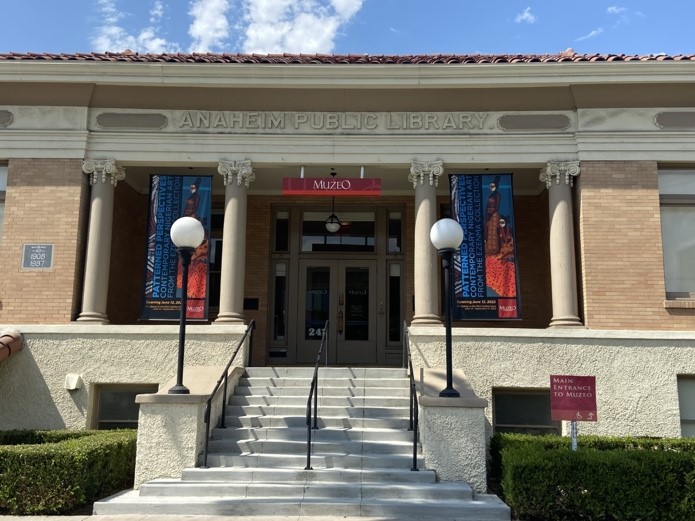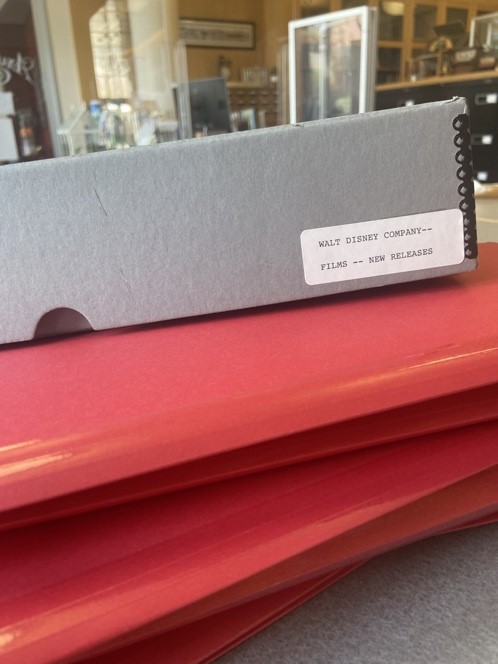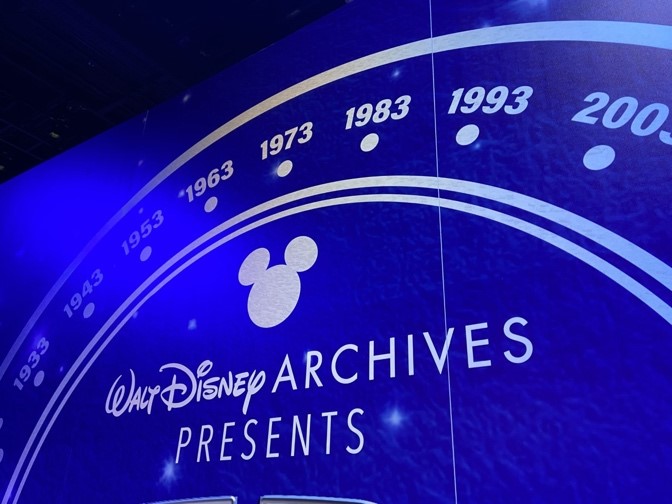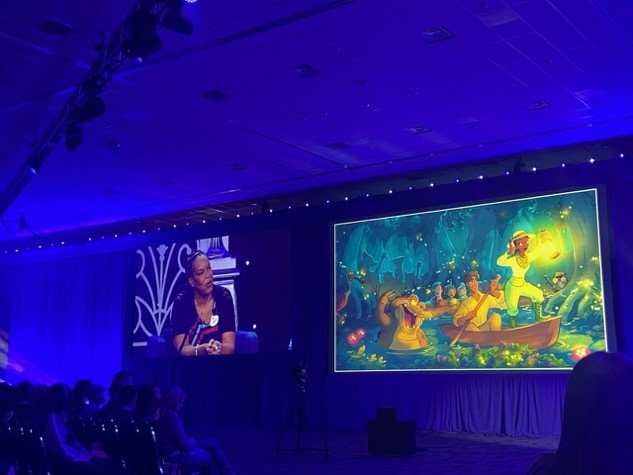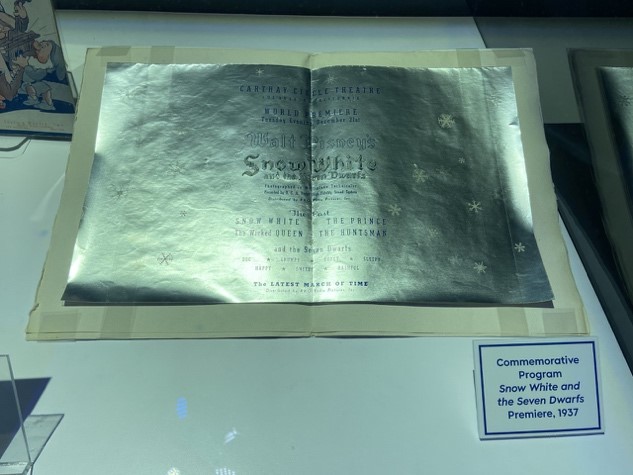Hannah Helm, one of our PhD students, was awarded funding from Santander to undertake research in Anaheim, California in the Walt Disney archives. Hannah’s interdisciplinary, intersectional PhD project investigates feminist, anti-sanist, and anti-ableist representations of femininity, madness, and disability in nineteenth-century children’s literature and Disney live-action film adaptation (2010-2019).
Hannah writes:
In December 2021, I was awarded funding to visit Anaheim for one week in September 2022, where I would conduct research at the Disney Archives and attend the D23 Expo event (9th-11th September). As a self-funded PhD student who missed out on opportunities to undertake archival and field-based work as a result of the COVID-19 pandemic, I was extremely grateful for this wonderful opportunity. During my trip, I was able to gather valuable research findings and connect with international scholars for the benefit of my PhD, associated peer-reviewed journal articles, and forthcoming international conference papers.
During the first part of my trip, I conducted research in the Disney Archives at Anaheim Public Library. It was great to meet with leading archivist Jane Newell and her team, who were very helpful and informative about the materials I wanted to view. The collection included tens (if not hundreds!) of varied titles relevant to any scholar working in Disney Studies, such as ‘Disney Periodicals’, ‘Disney Women’, and ‘Walt Disney Company Films: New Releases’. I could barely move around my desk, for I was surrounded by countless bulky folders on everything from Walt Disney’s early life, his work on animated film in the 1920s and 1930s, the Disney Renaissance in the late twentieth century (marked by the release of classic films such as The Little Mermaid (1989) and Beauty and the Beast (1991)), forthcoming films, merchandise, and attractions at Disney’s theme parks, and everything in-between.
One particular highlight was viewing the ‘Alice in Wonderland’ repository, which included pieces on Walt Disney’s creation of the film and his decision to hire writer and psychoanalyst Joseph Krutch ‘to provide an analysis [of madness] in the story’ (Matt Crandall and Paul Andersen, ‘Walt Disney’s Alice in Wonderland: In Celebration of its Recent Unbirthday’, Persistence of Vision (Spring 1993), p. 32). This information will be invaluable for my own investigation of gender and madness in Lewis Carroll’s Alice’s Adventures in Wonderland (1865), Tim Burton’s Alice in Wonderland (2010), and James Bobin’s Alice Through the Looking-Glass (2016), which I explore in the first chapter of my thesis. In addition, I was also able to access a rare document containing script notes from one unnamed film director at Disney. They discussed the importance of attending to various socio-demographics in movie making and ‘understand[ing] the audience’ and their needs. These are key factors that I similarly explore in my own analysis of gender, madness, and disability in Disney’s live-action film adaptations.
It was very rewarding to experience the D23 Expo in the second part of my trip. I attended several talks and events led by ‘Disney Legends’ and standout figures in the company, such as Bob Chapek (CEO of The Walt Disney Company), Doris Hardoon (Walt Disney Imagineering), and Chris Montan (President of Walt Disney Music, who is famous for overseeing best-selling film soundtracks such as Aladdin, Pretty Woman, and The Lion King). Having the opportunity to see these figures in person was amazing and so inspiring. I learnt so much more about Disney’s films; the attention paid to diversity in all aspects of Disney; and the ways in which Walt Disney’s own legacy lives on today, nearly sixty years after his death.
On the final day of the conference, I attended a panel discussion led by Walt Disney Imagineers, which was entitled ‘Walt Disney Imagineering: 70 Years of Making the Impossible, Possible’. American film producer Leslie Iwerks (granddaughter of Ub Iwerks, who co-created Mickey Mouse) was joined by a team of Imagineers to discuss the past, present, and future of Disney’s creativity. I particularly enjoyed one talk by Executive Creative Producer Charita Carter. Carter spoke passionately about how ‘representation matters’ in Disney because the company – now more than ever – is rightly focusing on films and products that reflect a variety of different identities in society. It is this focus on diversity and individual difference that is so important in my own thesis, and the talk really resonated with me. It was also very interesting to see rare artefacts at the Expo – such as Walt Disney’s private jet and an original 1937 cinema ticket for Disney’s first full-length animated feature Snow White and the Seven Dwarfs – up close and personal!
This trip has been invaluable for my ongoing research, and I now feel extremely motivated to incorporate these findings into my PhD. Once again, I am very grateful for the monies and opportunities provided by the Santander Travel Award and the School of Arts, Media and Creative Technology.
Hannah can be contacted via email (h.j.helm@edu.salford.ac.uk), and she can also be found on Twitter (hannah_helm_). All the photos below were taken by Hannah.
